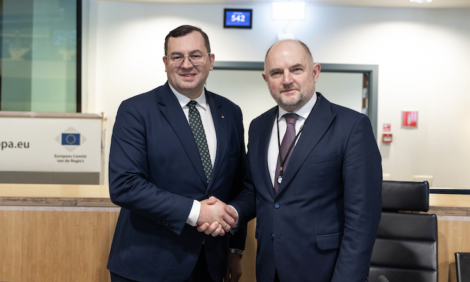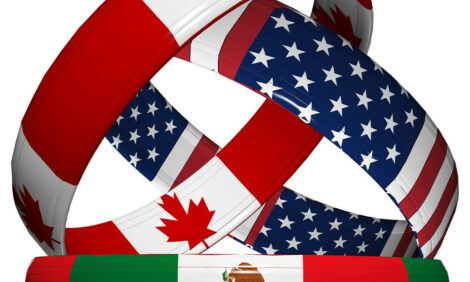



Dairy payment program a hot topic at Farm Bill forum
US - The extension of a dairy payment program set up to help dairy producers when milk prices drop was one of the key points of conversation Thursday at a 2007 Farm Bill Forum hosted by Rep. Steve Kagen in Green Bay.About 100 people attended the session at Northeast Wisconsin Technical College with participants touching on topics ranging from international trade, conservation efforts, federal milk order system, and spending on nutrition programs.
At the heart of the issue, however, was the Milk Income Loss Contract, which could see payment cuts by one-third under the proposed farm bill.
Kaukauna-area dairy farmer Bernie Vanderheiden said the program has been helpful to him and other farmers as they have weathered low prices in recent years. Vanderheiden — who milks about 50 cows — believes it should be extended.
“It keeps me afloat when the milk prices are low enough where there’s no profit in the industry,” he said after the meeting. “It’s kept the economy going. When the prices get it low, it makes a difference.”
The program was developed as a safety net in the early 2000s when the dairy industry faced dire prices. The state’s dairy farmers would continue to benefit from the program under the proposed budget, but the cash subsidies to offset low prices would be cut by one-third.
Farmers with gross incomes above $200,000 on their federal tax returns would be ineligible to participate in commodity farm programs and annual payments would be capped at $360,000.
Wisconsin Farmers Union President Sue Beitlich said they’d like to see the program’s funding fully restored.
“Did you hear anyone say, ‘Stop MILC?’” she said after the meeting. “No.”
“It’s not a hand out,” she added. “It’s a helping hand to get us through.”
Beitlich said the next step is making sure the program is extended to the end of September so baseline funding isn’t lost in the farm bill due to early expiration of the program.
Wisconsin farmers received $486 million through the program from 2003 through part of 2006, according to the Wisconsin Farm Bureau Federation.
The U.S. Senate last week passed a $122 billion emergency-spending bill containing a one-month extension of the MILC program, which is set to expire at the end of August.
The House of Representatives passed a bill last month containing a 13-month extension of the MILC, but that spending is discretionary, not mandatory — meaning that Congress would have to provide annual funding to keep the MILC program alive, according to the National Milk Producers Federation.
President Bush has threatened to veto the entire supplemental spending bill because it contains a timetable for removal of U.S. troops from Iraq. A compromise will have to be reached between the House and Senate on the MILC extension and other issues, according to NMPF.


